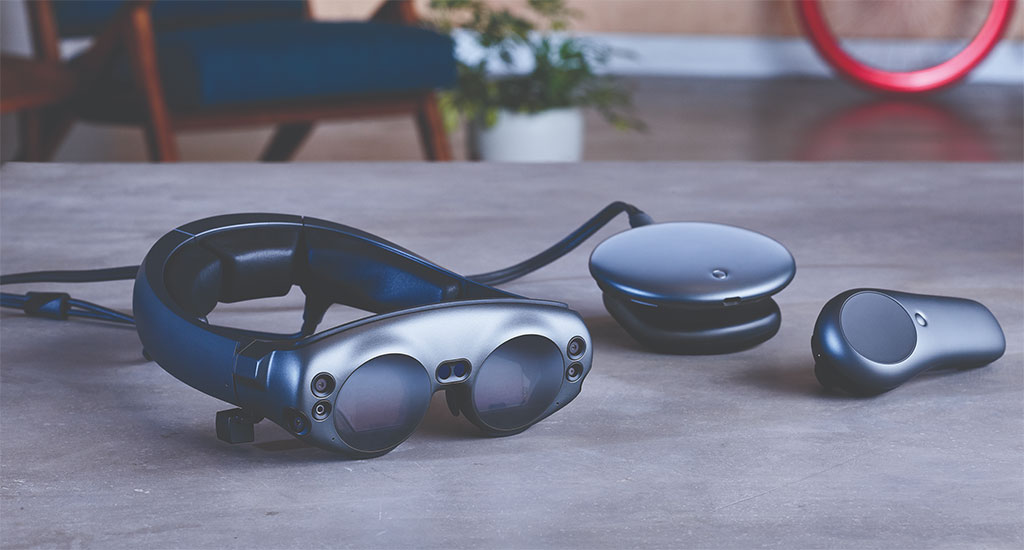Magic Leap's AR headset is finally available to buy, but it costs $2,295
Being an early adopter comes at a cost.

After seven years of development and billions of dollars in funding, Magic Leap is making available its augmented reality headset, the Magic Leap One Creators Edition, to developers and early adopters. No matter which category you fit into, be prepared to pay a premium—the asking price is $2,295.
The high price tag is not unusual for this sort of thing. Microsoft charges $3,000 the developer version of Hololens, and $5,000 for a commercial package that tacks on a warranty, added security, and various enterprise features. Likewise, Google initially sold a prototype version of its Glass goggles for $1,500 in 2013.
Google is one of the companies that has invested in Magic Leap. According to CNBC, Magic Leap's total funding to date is north of $2.3 billion. All of the investments and development have led to this point, and it will be interesting to see how the product is received.
Like HoloLens and Glass, the Magic Leap One is geared towards AR experiences that blend virtual elements with the real world. It is not intended for consumers yet. Instead, Magic Leap is hoping that developers will embrace its goggles and create unique experiences that will ultimately make it more appealing to consumers down the road.
The Magic Leap One is a standalone AR solution, in the sense that it does not need to be tethered to a PC like the Oculus Rift or HTC Vive, and is not powered by a smartphone like Samsung's Gear VR. It consists of a set of futuristic looking goggles, a controller, and a circular Lightpack that contains the bulk of hardware.
The Lightpack is essentially a computer in its own right—it pairs a six-core Nvidia Parker chip with a Pascal GPU, 8GB of RAM, and 128GB of onboard storage. Connectivity options include 802.11ac Wi-Fi, Bluetooth 4.2, and USB-C. There is also a 3.5mm headphone jack.
Whether Magic Leap's efforts will be the worth the wait when it eventually launches something for consumers remains to be seen. The Verge spent some hands on time with the developer model and said the "app demos kept highlighting the weaknesses" of the technology and "generally just weren't very novel or interesting."
Keep up to date with the most important stories and the best deals, as picked by the PC Gamer team.
Those are quibbles with the content though, and could be rectified by developers. As for the headset itself, The Verge said it is "very, very impressive compared to most mixed reality headsets."
Paul has been playing PC games and raking his knuckles on computer hardware since the Commodore 64. He does not have any tattoos, but thinks it would be cool to get one that reads LOAD"*",8,1. In his off time, he rides motorcycles and wrestles alligators (only one of those is true).


